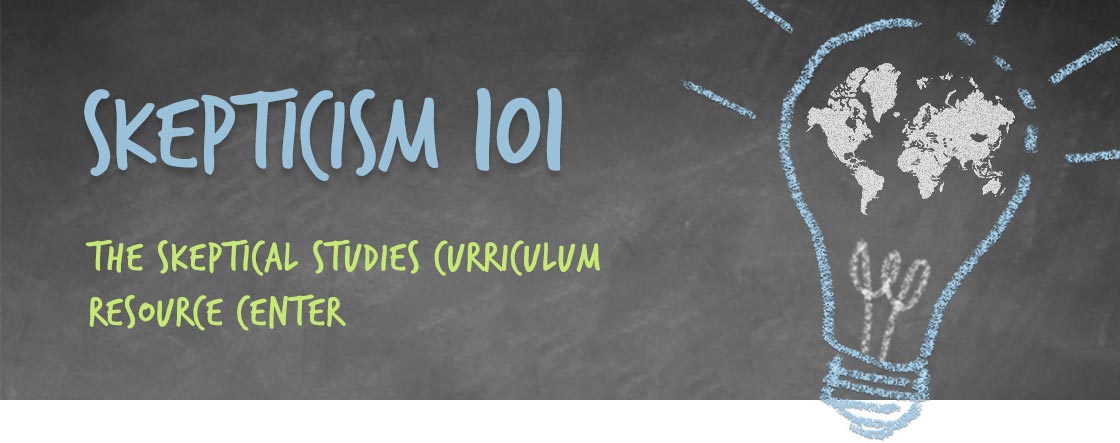You Are Browsing Resources
for the Academic Discipline of:
sociology and/or anthropology
What is a cult? What is the difference between a cult and a religion? Who joins cults and why? What are the social, cultural, and psychological reasons that people join cults? In this lecture Dr. Shermer presents research from sociologists and psychologists to attempt to answer these questions, while examining several examples of cults from recent history and when and why they can be dangerous.
DOWNLOAD THIS RESOURCE
(105 MB Powerpoint Presentation)
In this lecture Shermer addresses three aspects of evolution and economics: (1) How the market has a mind of its own—that is, how economies evolved from hunter-gathering to consumer-trading. (2) How minds operate in markets—that is, how the human brain evolved to operate in a hunter-gatherer economy but must function in a consumer-trader economy. (3) How minds and markets are moral—that is, how moral emotions evolved to enable us to cooperate and how this capacity facilitates fair and free trade.
DOWNLOAD THIS RESOURCE
(58 MB Powerpoint Presentation)
In this lecture, arguably his most controversial subject that is based on his highly-acclaimed book, How We Believe, Dr. Shermer addresses a very old question in religion with the newest data from science, namely: why do people believe in God? As he attempts to answer the question using the best theories and data from anthropology, psychology, sociology, and evolutionary biology, Dr. Shermer also addresses the important role of religion in society, the historical roots of religion and why it arose around 5000 years ago as a co-equal partner to governments and states, the origin of myths and the importance of myth-making in human cultures, and what belief in God means for individuals and society. In his always conciliatory and friendly approach to deep and controversial subjects, Dr. Shermer nevertheless is not afraid to face head-on, and courageously confront our most meaningful questions that we all have about God, the universe, and the meaning of life.
DOWNLOAD THIS RESOURCE
(217 MB Powerpoint Presentation)
The Origins of Morality and How to be Good Without God
In The Science of Good and Evil, a lecture based on the third volume in his trilogy on the power of belief, Dr. Shermer tackles two of the deepest and most challenging problems of our age: (1) The origins of morality and (2) the foundations of ethics. Does evil exist, and if so, what is the nature of evil? Is it in our nature to be moral, immoral, or amoral? If we evolved by natural forces then what was the natural purpose of morality? If we live in a determined universe, then how can we make free moral choices? Why do bad things happen to good people? Is there justice in the world beyond the social order? If there is no outside source to validate moral principles, does anything go? Can we be good without God? In this stunning conclusion to an intellectual journey into the mind and soul of humanity, Dr. Shermer peels back the inner layers covering our core being to reveal a complexity of human motives—selfish and selfless, cooperative and competitive, virtue and vice, good and evil, moral and immoral—and how these motives came into being as a product of both our evolutionary heritage and cultural history, and how we can construct an ethical system that generates a morality that is neither dogmatically absolute nor irrationally relative, a rational morality for an age of science.
DOWNLOAD THIS RESOURCE
(69 MB Powerpoint Presentation)
Taken from the chapter in his book The Believing Brain on the psychology of political beliefs, Dr. Shermer considers how belief systems operate in the realm of politics, economics, and ideologies. He reviews the research on why people vote Republican or Democrat, why we are so predictable in our political beliefs that if you know where someone stands on, say, abortion, you can predict where they stand on a number of other political issues, and what these political beliefs say about the nature of human nature.
DOWNLOAD THIS RESOURCE
(34 MB Powerpoint Presentation)
Does higher education systemically reduce belief? What do we know about this so far? This PowerPoint was used for an in-class presentation (in TEDTalk format) to discuss the correlation between higher education and belief in the paranormal. The presentation was created by Anondah Saide for Dr. Michael Shermer’s course, “Evolution, Economics & the Brain” taught at Claremont Graduate University during the spring 2011 semester.
DOWNLOAD THIS RESOURCE
(30 MB Powerpoint Presentation)
← PREVIOUS PAGE











